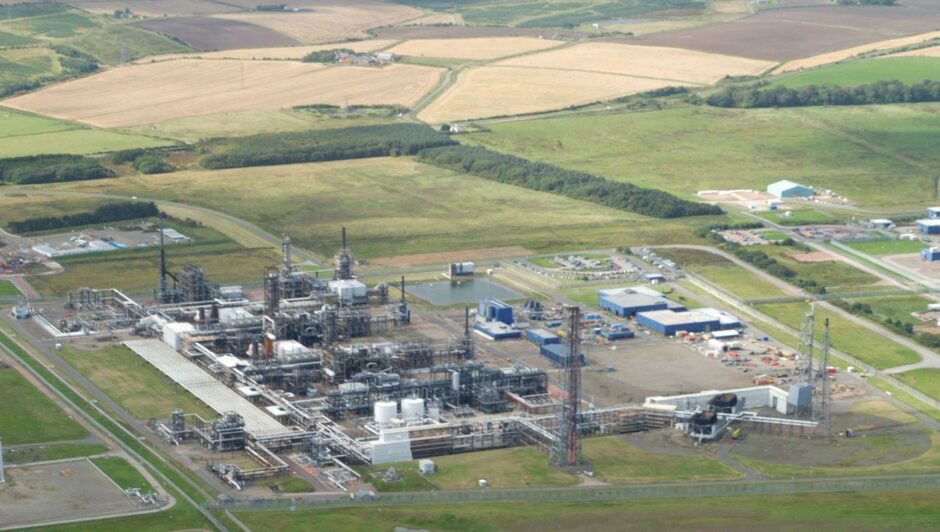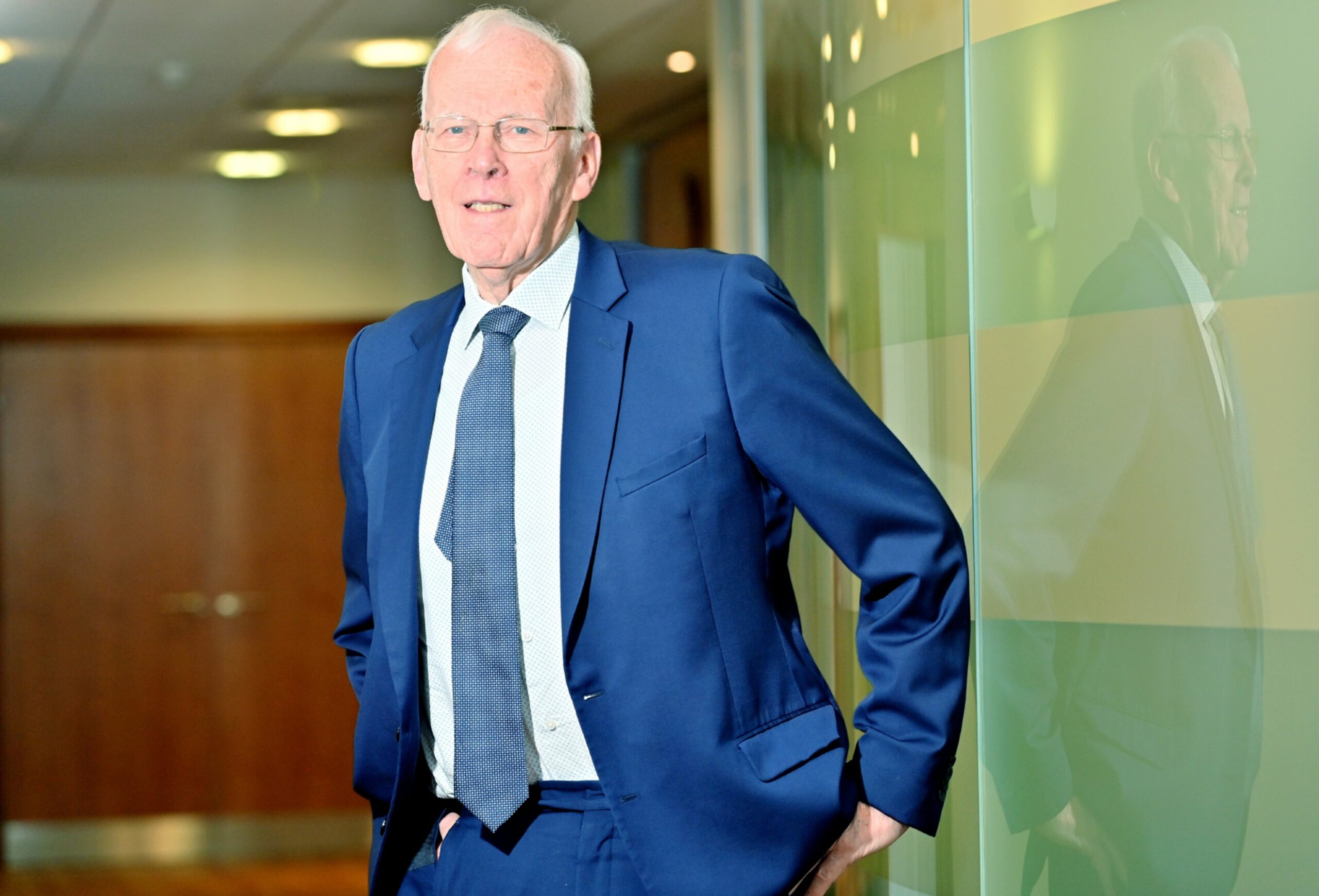
Scottish business leaders have joined forces with billionaire Sir Ian Wood to demand the North-east is made the centre of plans to decarbonise the UK energy system.
Ten senior business representatives, including Sir Ian, have signed a letter sent to Prime Minister Boris Johnson, urging him to back an ambitious project to capture and store carbon at north-east facilities, including St Fergus gas terminal.
Westminster is preparing to unveil a £1 billion investment in carbon storage projects as part of a competition designed to ensure the UK meets its net zero emission targets. Key to this will be the ability to ensure carbon-intensive industries such as oil and gas and the production of concrete can still be maintained while reducing, removing and storing carbon emissions.
The outcome of the Carbon Capture & Storage (CCS) Track 1 programme decision is expected later this month with a number of projects competing.
The “Track 1” projects will be deployed by the mid-2020s and those selected will be eligible to negotiate support from the Carbon Capture and Storage Infrastructure Fund as well as private sector funding.
The Acorn carbon capture, utilisation and storage (CCUS) project in Aberdeenshire is vying to be among the first two projects chosen. It aims to take industrial emissions and store them in depleted North Sea gas reservoirs.
Another competing project in the North East of England, Net Zero Teesside, is also thought to be a front-runner.
The letter, signed by leaders from Opportunity North East, CBI Scotland, IoD Scotland, Net Zero Technology Centre, Scottish Chambers of Commerce and Aberdeen & Grampian Chamber of Commerce, comes at a critical time as the UK Government prepares for the COP26 event in Glasgow at the end of the month and the Treasury finalises its autumn budget.
The letter to Mr Johnson argues that the project, known as the Scottish cluster, offers the opportunity to “create, safeguard and continue to support” tens of thousands of high-skill jobs, both directly and across the existing energy industry supply chain in the north east as well as across Scotland.
It sets out that Scotland is the most cost-effective place to launch CCS, which is a fledgling technology. This is largely due to the capacity for CO2 storage in the North Sea and the possibilities of reusing existing oil and gas infrastructure.
Highlighting some other unique aspects of the north-east proposal, the missive sets out Acorn’s plan to remove up to one million tonnes of CO2 every year through a new technology known as “direct air capture” (DAC).
It argues that a “successful Scottish bid will accelerate these plans and ensure the UK is home to the largest DAC facility in Europe and depending on the final configuration, the biggest in the world”.
The project also has cross-sector support including that of the Scottish Government, the letter confirms.
Sir Ian, who is chairman of ETZ Ltd, a not-for-profit company behind a plan to create an Energy Transition Zone near the Aberdeen harbour expansion, said that the Acorn plan meant the region was “quite simply, the standout location” for the government investment.
He said: “We have the established infrastructure, existing talent pool, and business capability to deliver. It is hugely encouraging to have Scotland’s business community uniting behind the bid and we urge the UK Government to approve it.”
Recommended for you

 © DCT Media
© DCT Media